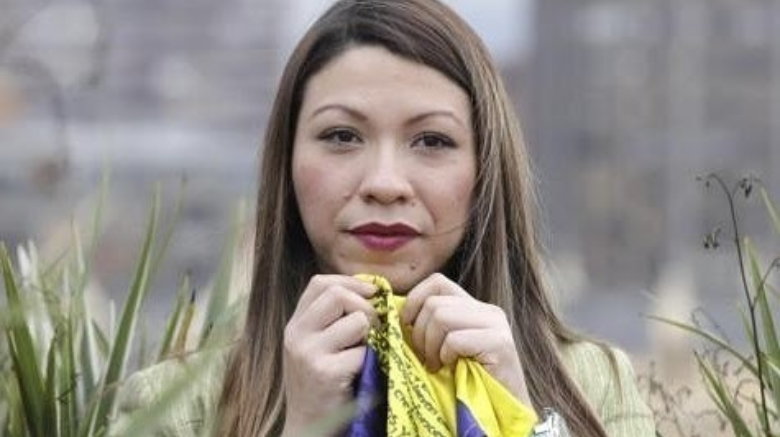She grew up in a family of community leaders. Her mother was a social leader, her father was involved in the union movement, and her brother was part of other social movements. Like them, Lublanc Prieto was a student leader when she attended law school at the University of Táchira. From the beginning, she felt a calling to work for human rights: “It is my passion, my vocation, and the purpose for which I was born. My mission in life is to help others,” says the founder and president of Refugiados Unidos.
Her professional career in Venezuela was marked by political persecution. She was legal advisor to the Attorney General in the Metropolitan Mayor’s Office, responsible for public contracting in Petróleos de Venezuela, and Head of the Office of the National Directorate of Surveillance and Discipline of Public Defense. Although she always stood out for her professionalism and avoided taking political positions in a divided country, she feared for her life as the persecution of political opponents became more and more open. The situation became unbearable in 2015 when this risk was compounded by the absence of medicines, including insulin, which Lublanc needs because she has diabetes. So she left her country and crossed the border into Colombia, fleeing for her life.
The beginning in Colombia was uphill, with visa applications denied, job opportunities cut short, and economic challenges. From the very start, however, she volunteered to help refugees from Venezuela. “I lived through all the hardships they experienced,” she recalls. Gradually, her work began to be recognized; the doors of academia opened for her, and she managed to study and then teach at the Pontificia Universidad Javeriana, where she established the first program of the legal clinic for refugees and migrants in 2018.
She was part of the first civil society organizations established to support forcibly displaced people from Venezuela in Colombia, and, in 2020, alongside Asylum Access, she took the first steps to start Refugiados Unidos, a founding member of the Resourcing Refugee Leadership Initiative (RRLI). Her organization offers humanitarian aid, legal support, and accompaniment in the development processes of forcibly displaced Venezuelans while building bridges with the host community.
Lublanc promotes the effective participation of refugees in decision-making processes, the transformation of the humanitarian system, as well as sustainable solutions for Latin American refugees. Her voice has been present in spaces such as the Senate of the Republic of Colombia, the Presidency and Vice-Presidency of the country, as well as multiple international events. She is a member of several international and regional networks, including the Action Network on Forced Displacement – Women as Agents of Change and the Global Refugee Strategic Litigation Council.
Today, her inspiring leadership is internationally recognized. She was the first Latin American woman to be nominated for the Elevate Prize, and was one of the 2024 finalists for this award celebrating social leaders around the world. However, she considers that she has had to overcome many challenges—as a woman, as a refugee, and as an activist—to achieve that: “We women have to go through more complex processes to create spaces and open doors so that we can be recognized. The system is not made for the recognition of us as leaders. The system is made for men. If I cry because I am a sensitive woman, they close doors on me. I have had to break down too many barriers so that Venezuelan refugees can have their space and have their voice heard.”
We need to have a more effective participation; we women need to be recognized with the level of importance we have within human mobility and refugee spaces. We are agents of change, and we should be recognized as such.
The lawyer and human rights defender considers it necessary that states, civil society organizations, and international organizations understand that the leadership of refugee women leads to sustainable, sensitive, and real solutions: “We need to have more effective participation; we women need to be recognized with the level of importance we have within human mobility and refugee spaces. We are agents of change, and we should be recognized as such. We have a real grassroots leadership with experience and multidimensional technical proposals. If women managed to have spaces and executive roles of power and decision making, it would change the narrative about the realities of refugees, as we would have processes more adapted to the real solutions they need.”
Read about more refugee women leaders like Lublanc: 5 Refugee Women Leading Change for Forcibly Displaced Communities

